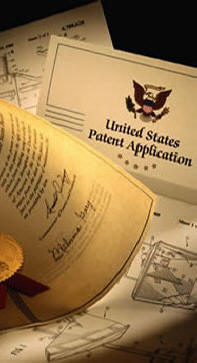Patents
-
An initial consultation with a U.S. registered patent attorney regarding an intellectual property matter is recommended to determine the scope of legal representation required. In a patent procurement matter the initial consultation may reveal whether patent protection is available or not. For example, some inventions are not patentable simply based on a statutory bar. Inventions not prevented from being patented by a statutory bar are typically recommended to have a search and formal patentability opinion rendered before a patent application is prepared. Alternatively, if it appears the invention is most likely not patentable based on a statutory bar, this opinion should be rendered by the patent attorney at the initial consultation. If you have already been granted a patent and believe another party is infringing on your patent, the initial consultation is necessary to determine the best course of action.
-
Prototype development and prototype engineering is often necessary for the product development cycle. You may need prototyping services to help you begin this process. Consultation on part design and consideration of manufacturability and material selection for prototype and production is important. Plastics engineering, mold design and material selection are all critical to develop an idea in a cost effective manner to a final prototype to retail product. 3D CAD drawings are typically developed from the inventor's concept drawings or patent drawings. The prototype may be used for demonstration purposes to potential investors and sales, form, fit and function testing, and/or for actual use depending on the application. Contact the Firm for more information on developing your prototype in conjunction with your patent application at a reduced cost.
-
The patent law specifies the general field of subject matter that can be patented and the conditions under which a patent may be obtained. In the language of the statute, any person who “invents or discovers any new and useful process, machine, manufacture, or composition of matter, or any new and useful improvement thereof, may obtain a patent,” subject to the conditions and requirements of the law. The word “process” is defined by law as a process, act or method, and primarily includes industrial or technical processes. The term “machine” used in the statute needs no explanation. The term “manufacture” refers to articles which are made, and includes all manufactured articles. The term “composition of matter” relates to chemical compositions and may include mixtures of ingredients as well as new chemical compounds. These classes of subject matter taken together include practically everything which is made by man and the processes for making the products.
-
The Atomic Energy Act of 1954 excludes the patenting of inventions useful solely in the utilization of special nuclear material or atomic energy for atomic weapons. The patent law specifies that the subject matter must be “useful.” The term “useful” in this connection refers to the condition that the subject matter has a useful purpose and also includes operativeness, that is, a machine which will not operate to perform the intended purpose would not be called useful, and therefore would not be granted a patent. Interpretations of the statute by the courts have defined the limits of the field of subject matter which can be patented, thus it has been held that the laws of nature, physical phenomena and abstract ideas are not patentable subject matter. A patent cannot be obtained upon a mere idea or suggestion. The patent is granted upon the new machine, manufacture, etc., as has been said, and not upon the idea or suggestion of the new machine. A complete description of the actual machine or other subject matter for which a patent is sought is required. According to the law, only the inventor may apply for a patent, with certain exceptions. If a person who is not the inventor should apply for a patent, the patent, if it were obtained, would be invalid. The person applying in such a case who falsely states that he/she is the inventor would also be subject to criminal penalties. If the inventor is dead, the application may be made by legal representatives, that is, the administrator or executor of the estate. If the inventor is insane, the application for patent may be made by a guardian. If an inventor refuses to apply for a patent or cannot be found, a joint inventor or a person having a proprietary interest in the invention may apply on behalf of the non-signing inventor.
-
If two or more persons make an invention jointly, they apply for a patent as joint inventors. A person who makes a financial contribution is not a joint inventor and cannot be joined in the application as an inventor. It is possible to correct an innocent mistake in erroneously omitting an inventor or in erroneously naming a person as an inventor. Officers and employees of the Patent and Trademark Office are prohibited by law from applying for a patent or acquiring, directly or indirectly, except by inheritance or bequest, any patent or any right or interest in any patent. (Excerpted from General Information Concerning Patents print brochure, USPTO)
Resources

In a newly issued precedential opinion, the Board of Patent Appeals
and Interferences (BPAI) has ruled that examiner findings are given
no deference when challenged on appeal.
(Ex Parte Frye (BPAI 2010)).
Read More